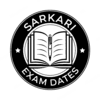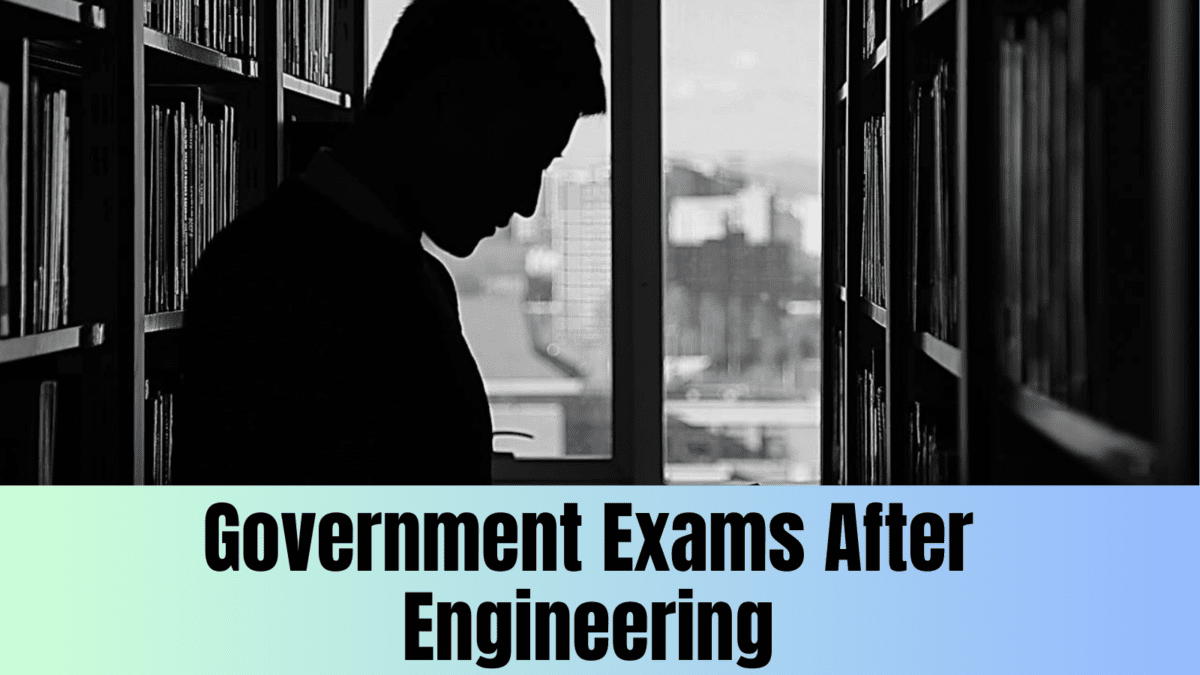Last Updated on 21 December 2024 by Piyush Kumar
For engineering graduates, government jobs offer an ideal mix of stability, prestige, and growth. With numerous opportunities available across various sectors, finding the right exam can be a game-changer for your career. Whether you aim to join public sector undertakings (PSUs), administrative services, or technical roles in research organizations, this guide will provide comprehensive insights into the top government exams in India after engineering.
Why Choose a Government Job After Engineering?
Government jobs are a preferred choice for many engineers due to their myriad benefits, including:
1. Stability and Security
A government job ensures financial security and long-term stability, unlike private-sector roles.
2. Lucrative Salaries and Perks
Engineers in government positions enjoy competitive salaries along with perks like housing allowances, medical benefits, and retirement pensions.
3. Career Growth
Government jobs provide clear promotion policies and opportunities to enhance skills.
4. Balanced Lifestyle
Fixed working hours and additional holidays contribute to an excellent work-life balance.
5. Societal Respect
Government employees are highly respected in Indian society, contributing to their prestige and recognition.
Related Articles –
Top Government Exams in India After Engineering
1. Indian Engineering Services (IES/ESE)
- Conducting Body: Union Public Service Commission (UPSC)
- Eligibility: Engineering graduates in Civil, Mechanical, Electrical, or Electronics branches
- Exam Stages: Preliminary Exam, Mains Exam, and Interview
- Highlights: Engineers are recruited for managerial roles in government departments like Railways, CPWD, and Power.
- Perks: High pay scale, housing, and pension benefits.
2. Graduate Aptitude Test in Engineering (GATE)
- Purpose: Recruitment for PSUs and admissions to postgraduate programs
- Eligibility: Final-year engineering students and graduates
- Popular PSUs Recruiting via GATE:
- Indian Oil Corporation Limited (IOCL)
- Bharat Heavy Electricals Limited (BHEL)
- Oil and Natural Gas Corporation (ONGC)
- Exam Format: Technical questions, aptitude, and mathematics
3. Public Sector Undertakings (PSU) Recruitment
- Recruitment Through GATE or Direct Exams
- Eligibility: Engineering graduates from specific streams
- Top Recruiters:
- NTPC (National Thermal Power Corporation)
- HPCL (Hindustan Petroleum Corporation Limited)
- BPCL (Bharat Petroleum Corporation Limited)
- Benefits: Stable job, high salary, and technical roles
4. Staff Selection Commission – Junior Engineer (SSC JE)
- Eligibility: Diploma or degree in engineering
- Job Roles: Junior Engineers in Civil, Mechanical, and Electrical fields
- Exam Pattern:
- Paper I: Objective Type
- Paper II: Descriptive Type
- Departments: Central Water Commission, CPWD, MES, and others
5. Railway Recruitment Board (RRB) Exams
- Popular Exams for Engineers:
- RRB Junior Engineer (JE)
- RRB Senior Section Engineer (SSE)
- Eligibility: Diploma or degree in engineering
- Perks: Free travel passes, medical facilities, and job stability
6. Defense Sector Exams for Engineers
- Defense Exams for Engineering Graduates:
- Combined Defense Services (CDS) Exam
- Technical Entry Scheme (TES) for Indian Army
- Indian Navy and Air Force technical branches
- Eligibility: Engineering graduates or final-year students
- Highlights: Serving in defense is prestigious, with excellent career growth opportunities.
7. State Public Service Commission (PSC) Exams
- Job Roles: Assistant Engineer (AE), Sub-Divisional Engineer (SDE)
- States Conducting PSC Exams: Uttar Pradesh, Maharashtra, Tamil Nadu, and others
- Exam Pattern: Preliminary, Mains, and Interview
- Advantages: State-level opportunities with great perks
8. Banking Sector Exams
- Exams: IBPS SO (Specialist Officer), SBI SO (Specialist Officer)
- Eligibility: Engineers with IT, Electronics, or Computer Science backgrounds
- Roles: IT Officer, Network Specialist, and other technical roles
- Highlights: Competitive salary and opportunities for technical experts
9. Research and Development (R&D) Organizations
ISRO (Indian Space Research Organization)
- Eligibility: Engineers in Electronics, Mechanical, and Computer Science
- Exam Pattern: Written test followed by an interview
- Job Role: Space and satellite technology research
DRDO (Defense Research and Development Organization)
- Eligibility: BTech/MTech in relevant disciplines
- Perks: Opportunities to work on cutting-edge technologies
How to Select the Right Government Exam After Engineering
1. Assess Your Strengths
Evaluate your academic background and technical expertise.
2. Set Career Goals
Decide whether you prefer technical roles, administrative positions, or research opportunities.
3. Analyze Exam Patterns and Syllabus
Choose exams that align with your skills and interests.
Preparation Tips for Government Exams After Engineering
1. Understand the Syllabus
- Download the official syllabus for your chosen exam.
- Prioritize topics based on their weightage.
2. Create a Study Plan
- Divide your preparation into technical, aptitude, and general studies sections.
- Set achievable daily and weekly goals.
3. Practice Regularly
- Attempt previous year papers and mock tests.
- Focus on time management and accuracy.
4. Use Reliable Study Material
- Refer to standard textbooks and online resources.
- Enroll in coaching if necessary.
5. Stay Updated
- Follow current affairs and read newspapers daily.
- Focus on government schemes and initiatives.
Conclusion
The top government exams in India after engineering provide excellent opportunities for a secure and fulfilling career. Whether you aspire to join administrative services, PSUs, or technical research organizations, thorough preparation and dedication are key to success. Choose the exam that aligns with your strengths and career aspirations, and embark on your journey to a rewarding government job!
FAQs For Government Exams After Engineering
Can engineering graduates apply for IAS or IPS through UPSC?
Yes, engineering graduates can appear for the UPSC Civil Services Exam to join IAS, IPS, or IFS.
Is GATE mandatory for PSU jobs?
Most PSUs require GATE scores, but some conduct independent recruitment exams.
What is the age limit for government exams after engineering?
The age limit varies across exams, typically ranging from 21 to 35 years, with relaxations for reserved categories.
Which branch of engineering is best for government jobs?
Civil, Mechanical, and Electrical engineering have the most opportunities in government sectors.
How can I prepare for technical roles in government exams?
Focus on your engineering subjects, solve technical question banks, and practice mock tests regularly.




